Filter by

Power, alliances, and redistribution : the politics of social protection for …
Latin America is considered the most unequal continent in the world. Paradoxically, the development of resource-intensive social systems has done little to change the social imbalance. The author traces this paradox using Argentina as an example, uncovering the underlying conflicts of power and interests, and identifying successful strategies for implementing inclusive policies. As the first st…
- Edition
- -
- ISBN/ISSN
- 9783966650281
- Collation
- 373p
- Series Title
- -
- Call Number
- 306.0982 BOS

The Electoral Consequences of Third Way Welfare State Reforms : Social Democr…
In all advanced Western nations, policy-makers have implemented encompassing welfare state reforms in recent decades breaking with past welfare arrangements. In particular, social democracy engaged in significant policy change under the Third Way paradigm and broke with its traditional reputation on welfare that had built the ties with the core constituency in the 20th century. The Electoral Co…
- Edition
- -
- ISBN/ISSN
- 9789089644503
- Collation
- 280p
- Series Title
- Changing Welfare States
- Call Number
- 306.09409051 ARN
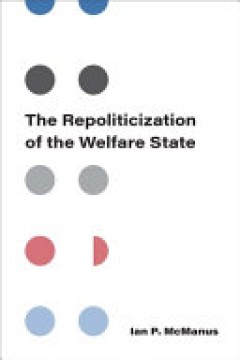
The Repoliticization of the Welfare State
The Repoliticization of the Welfare State grapples with the evolving nature of political conflict over social spending after the Great Recession. While the severity of the economic crisis encouraged strong social spending responses to protect millions of individuals, governments have faced growing pressure to reduce budgets and make deep cuts to the welfare state. Whereas conservative parties h…
- Edition
- 1
- ISBN/ISSN
- 9780472075324
- Collation
- 234p
- Series Title
- -
- Call Number
- 332.1094 MCM
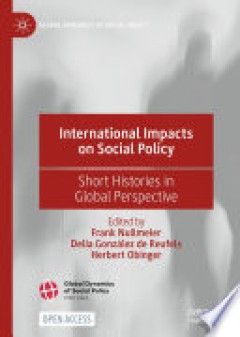
International impacts on social policy : short histories in global perspective
This open access book consists of 39 short essays that exemplify how interactions between inter- and trans-national interdependencies and domestic factors have shaped the dynamics of social policy in various parts of the world at different points in time. Each chapter highlights a specific type of interdependence which has been identified to provide us with a nuanced understanding of specific s…
- Edition
- -
- ISBN/ISSN
- 9783030866457
- Collation
- XXVIII, 542 p
- Series Title
- -
- Call Number
- 361.61 INT i

Vulnerability in Scandinavian Art and Culture
In this open access book, seventeen scholars discuss how contemporary Scandinavian art and media have become important arenas to articulate and stage various forms of vulnerability in the Scandinavian welfare states. How do discourses of privilege and vulnerability coexist and interact in Scandinavia? How do the Scandinavian countries respond to vulnerability given increased migration? How is v…
- Edition
- -
- ISBN/ISSN
- 9783030373825
- Collation
- xvii, 324p. : ill.
- Series Title
- -
- Call Number
- 709.48 VUL v
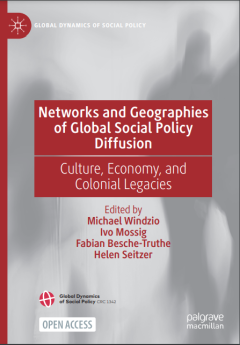
Networks and geographies of global social policy diffusion : culture, economy…
This open access book analyses the global diffusion of social policy as a process driven by multiplex ties between countries in global social networks. The contributions analyze links between countries via global trade, colonial history, similarity in culture, and spatial proximity. Networks are viewed as the structural backbone of the diffusion process, and diffusion is anlaysed via several su…
- Edition
- 14
- ISBN/ISSN
- 978-3-030-83403-6
- Collation
- xvi; 272p;
- Series Title
- -
- Call Number
- 361.61 NET M

Towards a natural social contract : transformative social-ecological innovati…
This open access book states that the endemic societal faultlines of our times are deeply intertwined and that they confront us with challenges affecting the security and sustainability of our societies. It states that new ways of inhabiting and cultivating our planet are needed to keep it healthy for future generations. This requires a fundamental shift from the current anthropocentric and eco…
- Edition
- -
- ISBN/ISSN
- 9783030671303
- Collation
- xiv, 205p. : iil.
- Series Title
- -
- Call Number
- 303.372 HUN t
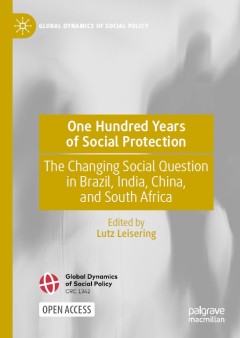
One hundred years of social protection : the changing social question in Braz…
While the rise of social protection in the global North has been widely researched, we know little about the history of social protection in the global South. This volume investigates the experiences of four middle-income countries - Brazil, India, China and South Africa - from 1920 to 2020, analysing if, when, and how these countries articulated a concern about social issues and social cohesio…
- Edition
- -
- ISBN/ISSN
- 9783030549596
- Collation
- xxiv, 437p. : ill.
- Series Title
- -
- Call Number
- 361.61 ONE o
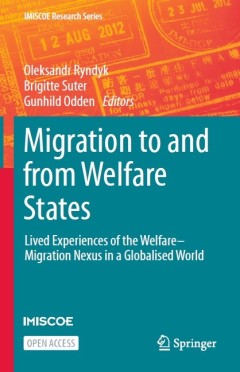
Migration to and from welfare states : lived experiences of the welfare-migra…
This open access book explores the role of family, public, market and third sector welfare provision for individual and households’ decisions regarding geographical mobility. It challenges the state-centred approach in research on welfare and migration by emphasising migrants’ own reflections and experiences. It asks whether and in which ways different welfare concerns are part of migrants�…
- Edition
- -
- ISBN/ISSN
- 9783030676155
- Collation
- xi, 235p. : ill.
- Series Title
- -
- Call Number
- 304.809 MIG m

Evidence use in health policy making : an international public policy perspec…
This open access book provides a set of conceptual, empirical, and comparative chapters that apply a public policy perspective to investigate the political and institutional factors driving the use of evidence to inform health policy in low, middle, and high income settings. The work presents key findings from the Getting Research Into Policy (GRIP-Health) project: a five year, six country, pro…
- Edition
- -
- ISBN/ISSN
- 9783319934679
- Collation
- xiv, 245p. : ill.
- Series Title
- -
- Call Number
- 320.6 EVI e
 Computer Science, Information & General Works
Computer Science, Information & General Works  Philosophy & Psychology
Philosophy & Psychology  Religion
Religion  Social Sciences
Social Sciences  Language
Language  Pure Science
Pure Science  Applied Sciences
Applied Sciences  Art & Recreation
Art & Recreation  Literature
Literature  History & Geography
History & Geography